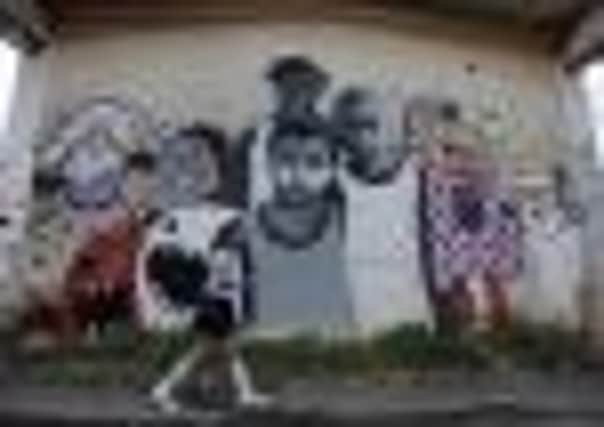Jeremy Frankel: America’s embargo prevents Cuba from coming to its senses


For an American, the short trip to Havana requires navigating an obstacle course, owing to the trade and travel embargo the US maintains against Cuba. It is also a trip back to 1959.
Signs of this time warp are instantly apparent: American cars of the 1950s stand out among the few vehicles on the streets in Havana. Most run well and look magnificent.
Advertisement
Hide AdAdvertisement
Hide AdUnfortunately, the rest of Cuba’s economy does not. Cuba has one of the world’s longest-lasting dual-exchange-rate systems: the dollar’s value is 25 times the official rate of parity (one peso equals one dollar). This means hotel or restaurant workers who retain dollar earnings have incomes 25 times higher than those who can’t.
Cuba long ago developed skilled services such as medicine and education. But doctors and professors earn far less than those in the fledgling private economy. The latter includes 178 approved job types; by design, none makes use of an educated person’s skills. And most people are still employed by the state.
So how can such a system have survived for so long? Repression and fear alone do not explain it. People in Eastern Europe eventually figured Communism doesn’t work and the market does. And if the US did not exist, or the embargo did not exist, Cubans would do likewise: infer something is wrong with a system that involves so much time wasted and so many desires frustrated.
But, for many Cubans, the embargo has placed an alternative explanation at hand – it must be the US and its embargo that is to blame for Cuba’s dysfunctional economy.
Reforms have been renewed in recent years – now under the heading of “los lineamientos,” or the “guidelines.” For example, since 2011 people can buy and sell houses. Similarly, farmers can now sell directly to the market, including hotels and restaurants, rather than just to the state. One reason for this is the pragmatism of Raul Castro, who took over after his brother Fidel fell ill in 2006. Another reason, however, is that Venezuelan financing has lately begun to level off, and its future appears uncertain.
In 1995, Cuba’s minister for heavy industry, referring to the country’s dependence on the US until the 1959 revolution and dependence on the Soviet Union until 1989 vowed, “We will never let this happen to us a third time.” Yet that is precisely what is now happening with respect to Venezuela.
Four developments will soon occur: the ageing Cuban émigrés who have dictated US policy on their homeland will give way to the next generation; the Castros will pass on; US-Cuban relations will be normalised; and one of the two remaining museums of Communism will become a growing, service-exporting market-based economy.
l Jeffrey Frankel, a Harvard University professor, served as a member of US president Bill Clinton’s Council of Economic Advisers.